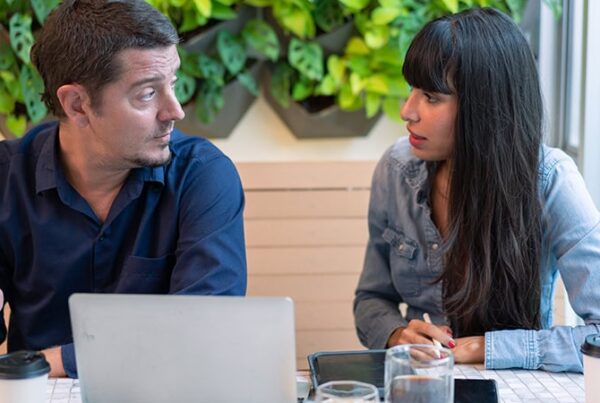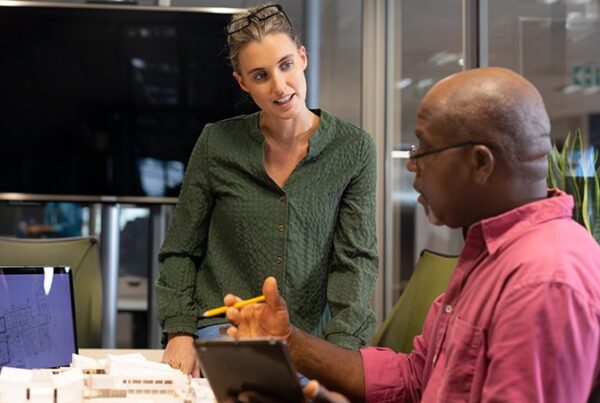
Is your business involved in research and/or innovation? The European Union has a pot of €95.5 billion to help organisations of every size make innovative breakthroughs in areas such as the environment, energy, science, and digital. The Horizon Europe programme is fairly complex, so I asked Paul Phelan, research management consultant at RDP Associates, to walk me through the key points.
The current Horizon Europe programme runs from 2021 until 2027. It has changed quite a bit from the previous programme (Horizon 2020), so if you looked at it in the past and decided it wasn’t for you, it could be worth a fresh look now.
What is Horizon Europe?
Horizon Europe is a multiannual programme for funding R&D and innovation. With a total value of almost €100 billion, it is very large and therefore has a range of layers, partnerships, and missions. There are three core pillars to the programme, which are:
- Pillar 1 – Excellent Science
- Pillar 2 – Clusters (industrial competitiveness)
- Pillar 3 – Innovative Europe (market-creating breakthroughs and ecosystems)
The concrete ripple-down for SMEs is the calls for proposals – some open and some more industry/problem specific – allowing you to apply for research and development funding. SMEs are given priority, but any research-performing organisation can apply (big industry, research facilities, universities, etc.). Although it is highly competitive, they are trying to encourage more SMEs to participate in Horizon Europe. The success rate for SMEs applying to Horizon 2020 was quite low, so it’s hoped this will increase significantly on the current programme.
Why would companies apply for Horizon Europe funding?
Given the high bar, what is the main motivation for companies applying for Horizon Europe? Paul says that often the company is looking to improve its connections and market presence around Europe. Sometimes it is the desire to explore an area which is too risky to justify investigating without support – so applying for funding is part of their risk management process. Some SMEs are keen to collaborate with others or access technical expertise they don’t have, so this programme makes a lot of sense. However, if you do collaborate on a project, the results will typically be shared, and this doesn’t suit everyone.
Beyond actual cash, a strategic element of programmes such as Horizon Europe is the awareness you can look forward to leveraging. The programme will be profiling your business across Europe and telling everyone who’s potentially interested about your project. If you’re smart, this is something you can really capitalise on as you’ll be invited to networking events, introduced to influential people, and guided through plenty of open doors. Any determined SME will be able to build long-term partnerships and find new routes to market from this.
Who can apply for Horizon Europe funding?
The European Innovation Council (EIC) is one of the new features of this current programme. It acts like a one-stop-shop to fund the most promising start-ups and companies in scaling their innovative ideas. The European Innovation Council is the most commercial of all the funds – i.e., it’s for ideas that are the closest to market, which is less usual for EU funding.
SMEs can participate in most Horizon Europe opportunities – even early stage and pre-revenue startups; often the biggest challenge is finding the call that suits their project idea. This is hard because the fund is vast and there are so many potential avenues. A quick look on their site today shows nearly 500 forthcoming and live calls for submissions! Helping companies to identify the right call, prepare their strategy, and get a sense check on the proposals being written are some of the ways RDP Associates can help SMEs.
Another new development is that European Innovation Council offers a mix of funding and equity (depending on the call). Equity was not an option before and although you can opt to receive only grant funding and not give away equity, there are lots of reasons this might not be desirable. As Paul says, the programme is meant to be much more than funding – it essentially acts as an accelerator, and you’ll benefit from additional supports such as coaches, mentors, and access to partners and the innovation network. This means you can opt for the perfect balance of equity and grant.
What does it take to create a Horizon Europe proposal?
There is a lot of work involved in producing a proposal for Horizon Europe funding, so you will need to ensure you have the bandwidth for it. Do get outside expertise from a specialist because even if you have a strong proposal and have identified the right programme, there are still pitfalls and ways to shoot yourself in the foot. As Paul says, “It’s so competitive; don’t give them a reason to kill you off!”
That’s not to say you should outsource the entire process. Paul recommends you get advice on your strategy, but he says that proposals written mainly in-house often have more authority and authenticity. The input time required will depend on the project and how adept the project leaders are at putting together this kind of documentation. It is a significant time requirement, as it could easily take several weeks’ work to complete a proposal. Ideally, factor in 4 to 8 days of professional support on top of this.
Another reason it’s important to work with advisors is to ensure you don’t create unintended consequences down the line. This is true of grants in general, as it’s not uncommon to find that accepting one type of grant – cash which was quite possibly handed to you on a silver platter at an earlier stage of the business – will block your ability to apply for others. This can hit you out of the blue several years later, meaning you miss out on much bigger opportunities.
Are there downsides to Horizon Europe funding?
We always say it’s important not to chase after grants just because they are available, and to pick and choose which supports you engage with. RDP takes the same approach when advising clients. Grants like those from Horizon Europe aren’t simply “free money”. The funding is based on your agreement to carry out your project, so if you do get funded, they’ll be back to check how it is going. SMEs are often in a very dynamic situation and their product strategy/market strategy can change overnight. If they’ve had one of these grants, they may be obliged to see a project through even though the market or their strategy has evolved, which means dedicating resources to something they don’t want to do any more.
Do be strategic about funding and have a long-term roadmap so that you can pick and choose what you go for with confidence. Paul and I recommend that you consider grants only if the grant is there to do what you already wanted to do, and you’re sure you’ll still want to do it by the time the grant comes through (and for its duration). It can be painful to give back funding that you’ve already spent.
Irish SMEs win Horizon Europe funding
Update December 2024: Irish organisations have so far been awarded over €836 million in funding from the 2021-2027 programme (from the €39 billion awarded to date). 1,295 projects involving 487 individual Irish organisations have secured funding since 2021. Successful applicants from Ireland come from a range of sectors and include higher education institutions, research organisations, public organisations, and SMEs. 217 Irish SMEs have been awarded €233 million under Horizon Europe and Ireland ranks fourth amongst EU member states for SME participation in projects.
Horizon Europe funding represents the kind of financial boost that most of us only dream of, and will enable an ambitious SME with a timely idea to make ground-breaking change in their industry. I believe that anyone serious about innovation should definitely consider it, starting with some advice from those who know the ecosystem well.



